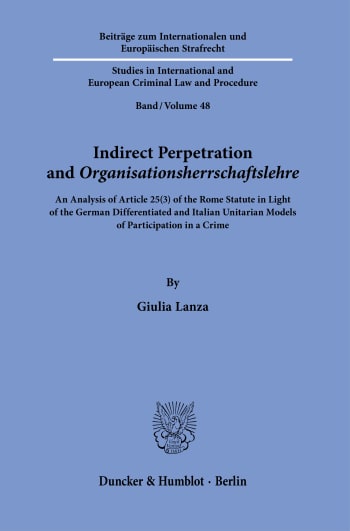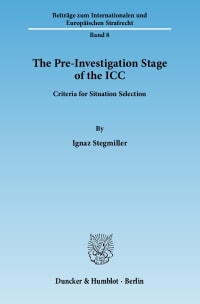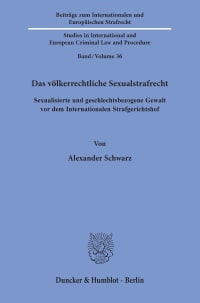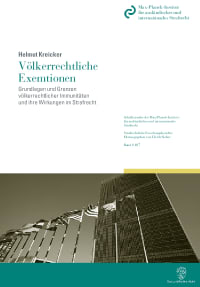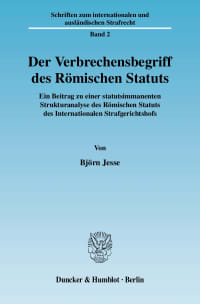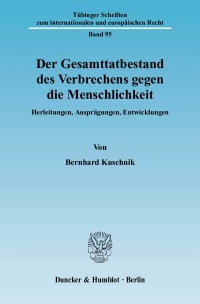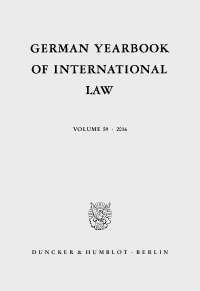An Analysis of Article 25(3) of the Rome Statute in Light of the German Differentiated and Italian Unitarian Models of Participation in a Crime
Beschreibung
The book analyses indirect perpetration within the meaning and interpretation of article 25(3)(a), third alternative, of the Rome Statute from a comparative perspective. Through a critical analysis, Giulia Lanza examines the control over the organization theory, adopted by the majority to interpret the provision. The objective of the author is to verify whether the dominant approach – resulting from the transposition of Roxin’ s Organisationsherrschaftslehre at the ICC – constitutes a feasible solution in the interpretation and application of article 25 (3)(a), third alternative, of the Rome Statute, or whether it is preferable to rely on different approaches inspired by other legal systems, such as the Italian system. The author concludes that the reliance on the Organisationsherrschaftslehre constitutes an important step in the path towards the development of autonomous ICL doctrine regarding indirect perpetration.
Inhaltsübersicht
A. Introduction
The Problem – Objective of the investigation – Methodology – Terminology
B. The Organisationsherrschaftslehre
Context and origin – The Organisationsherrschaftslehre as an autonomous form of indirect perpetration – Alternative solutions to the Organisationsherrschaftslehre
C. Towards the application of the control over the organisation theory at the ICC
The premises of the adoption of the Organisationsherrschaftslehre at the ICC – The interpretation and application of art. 25(3)(a), third alternative, ICCSt – The theoretical foundations of the control over the organisation theory
D. The application of the Organisationsherrschaftslehre in domestic jurisdictions
General remarks – Concluding observations on the application of the Organisationsherrschaftslehre – Conclusion
E. An Italian approach to art. 25(3)(a), third alternative, ICCSt
The prosecution and punishment of leaders in collective contexts in the Italian legal system – The Katanga and Ngudjolo case and the Italian legal system
Conclusion
Bibliography
Table of cases
Index
Weitere Bücher zum Thema
Kontakt
-
+49 30 / 79 00 06 - 0
-
Bestellinformation
-
Versandkostenfrei innerhalb Deutschlands.
-
Für Kunden aus EU-Ländern verstehen sich unsere Preise inklusive der gesetzlichen Mehrwertsteuer und – außer bei digitalen Publikationen – zuzüglich Versandkosten. Für Kunden aus Nicht-EU-Ländern verstehen sich unsere Preise als mehrwertsteuerfrei und – außer bei digitalen Publikationen – zuzüglich Versandkosten.
-
-
Newsletter
